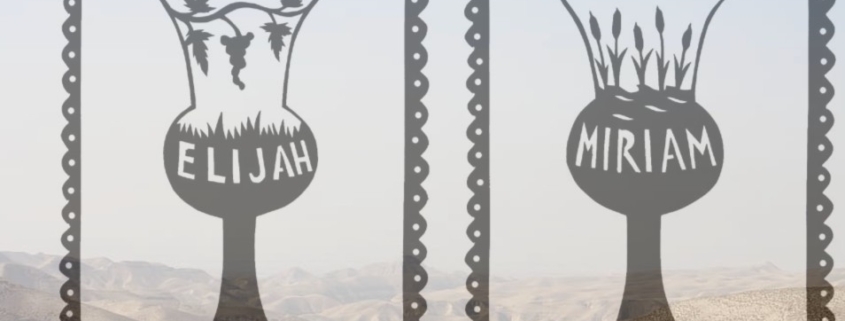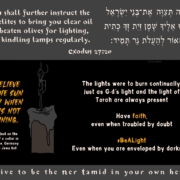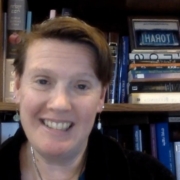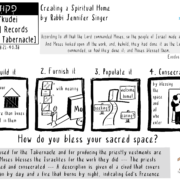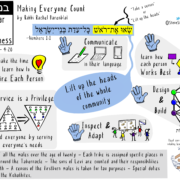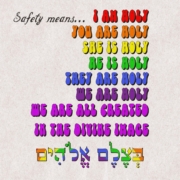Vaera: Our Cup Undrunk For Now
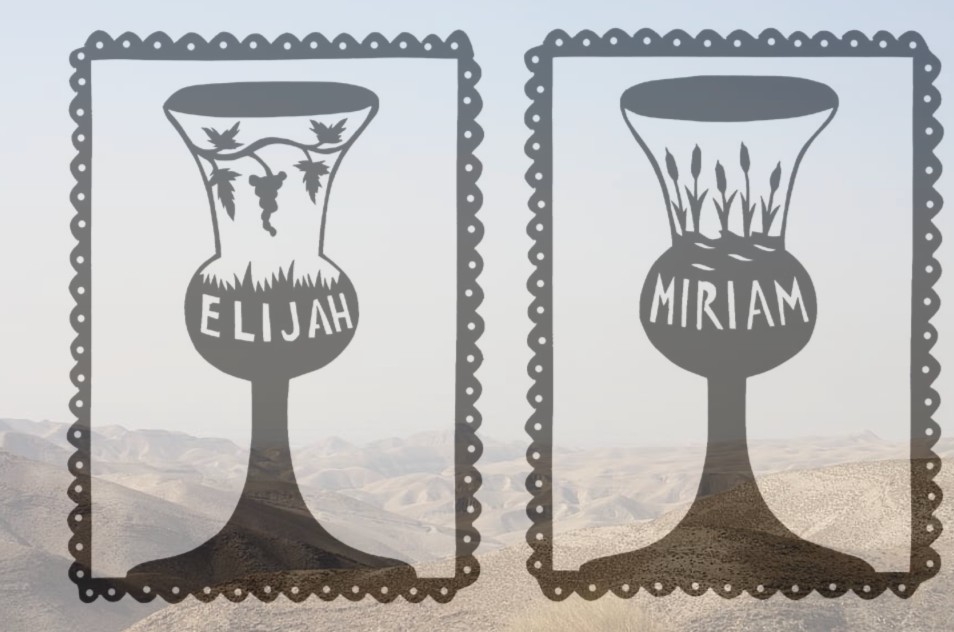
Part of an ongoing series that explores Torah through an ethic of social justice and building a world worthy of the Divine.
Liberation can feel like grace. In the prophetic prose of Dr. Martin Luther King Jr. quoting the prophet Amos, eventually social “justice will roll down like waters, and righteousness like a mighty stream” (Amos 5:24).
Until then, however, the work of collective betterment asks human effort and agency – the advocacy, organizing, struggle, blood, sweat and tears that propel successful social movements.
But Judaism’s original and perhaps most famous narrative of liberation and redemption didn’t say so. Parshat Vaera opens with God telling Moses to assure the enslaved Israelites of a forthcoming divine liberation from Egypt, by divine acts having no need or possibility of collective participation.
What our spiritual ancestors made of this Torah narrative – and how history harnessed its core message – holds a key to cultivating a social justice ethic for all time.
The five divine promises of liberation (Exodus 6:6-8) are cornerstones of every Passover seder:
וְהוֹצֵאתִ֣י אֶתְכֶ֗ם מִתַּ֙חַת֙ סִבְלֹ֣ת מִצְרַ֔יִם
I will take you out from under the burdens of Egypt.
וְהִצַּלְתִּ֥י אֶתְכֶ֖ם מֵעֲבֹדָתָ֑ם
I will rescue you from their slavery.
וְגָאַלְתִּ֤י אֶתְכֶם֙ בִּזְר֣וֹעַ נְטוּיָ֔ה וּבִשְׁפָטִ֖ים גְּדֹלִֽים
I will redeem you by outstretched arm and great acts of judgment.
וְלָקַחְתִּ֨י אֶתְכֶ֥ם לִי֙ לְעָ֔ם וְהָיִ֥יתִי לָכֶ֖ם לֵֽאלֹהִ֑ים וִֽידַעְתֶּ֗ם כִּ֣י
אֲנִ֤י יהו”ה֙ אֱלֹ֣הֵיכֶ֔ם הַמּוֹצִ֣יא אֶתְכֶ֔ם מִתַּ֖חַת סִבְל֥וֹת מִצְרָֽיִם׃
I will take you to Me as a people, and I will be God to you, and you will know that
I, YHVH, am your God who takes you out from under the burdens of Egypt.
וְהֵבֵאתִ֤י אֶתְכֶם֙ אֶל־הָאָ֔רֶץ אֲשֶׁ֤ר נָשָׂ֙אתִי֙ אֶת־יָדִ֔י לָתֵ֣ת אֹתָ֔הּ לְאַבְרָהָ֥ם לְיִצְחָ֖ק וּֽלְיַעֲקֹ֑ב
I will bring you into the Land that I swore to give to Abraham, Isaac and Jacob.
Five promises, all by God, not yet asking anything in return – no conditions, no commandments, no qualifications, no sustained human effort to pursue social justice as a permanent ethic and way of life. These promises arose from divine grace, precisely because an enslaved people couldn’t imagine freedom nor social justice, and so a liberated people would know their Source of Liberation to transcend human capacity.
In that spirit, every Passover toasts these promises as a celebratory peak of the Jewish year. Talmud’s sages mapped the first four promises to what became tradition’s four cups of the seder (Yerushalmi: Pesahim 10:1). In the jubilation of a freed people living large, seder participants sit comfortably, lean luxuriously and toast our liberation and Liberator with song.
The fifth promise, however, is something else altogether. The fifth promise that liberation would lead “into the Land” – whether literally the Land of Israel, or something else – was unfulfilled in Talmudic days. After Romans destroyed the Second Temple in 70 CE, Jewish autonomy ended and Jews began scattering around the world, often encountering privations and different kinds of bondage. The fifth promise of liberation became not a celebration but a yearning for a better future.
Originally there was no fifth cup at the Passover seder (Mishnah Pesahim 10:7). Tradition’s rabbis later debated whether the fifth promise of coming “into the Land” merited a fifth cup. By the 11th century CE, Maimonides (Rambam) and his descendants were arguing for a fifth cup to be blessed but left undrunk (Mishneh Torah, Hilkhot Hameitz u’Matzah 8:10). By medieval days, the predominant tradition was to pour and bless a fifth cup but leave it untouched, though the pious who most yearned for liberation could drink it (Shulhan Arukh, Orekh Hayyim 481:1).
Today most Passover seders feature a cup poured and blessed but left untouched. This Kos Eliyahu (Elijah’s Cup) takes its name from the Prophet Elijah, who never died but rather ascended, and whose hoped-for future return would settle debate and herald a new era of peace and justice.
So we celebrate and yearn. But what do celebrating and yearning have to do with cultivating a permanent social justice ethic? To us, an answer emerges from what happened next.
From a ritual perspective, alongside Elijah’s Cup arose Miriam’s Cup – an abundant cup of water for mysticism’s miraculous well of water that Miriam, sister of Moses, brought forth on the freed Israelites’ desert journey. Miriam’s Cup added an expressly feminine voice and a symbol of serving people’s immediate needs rather than waiting.
Bonna Haberman z”l, a founder of Women of the Wall, took a next step. In her beautiful book Rereading Israel, Spirit of the Matter, Haberman wrote that coming “into the Land” must have new meaning in a modern world with a State of Israel. Rather, she taught, coming “into the Land” must mean entering ever more “deeply” by acts of social justice to heal the Land.
Understood this way, the fifth promise is transformed from a divine promise we await, to a divine promise that if we ourselves act, then the fifth promise will be fulfilled.
That clarion call is the modern message of the fifth cup (now cups – for Elijah and Miriam): even amidst celebration we must never rest on laurels or close our eyes to all that remains undone. We must take up our tools and build that better future. After all, too many remain bound, hopeless, unable even to yearn for a better future. For them, and so for all of us, the fifth cup remains undrunk.
But symbols only matter if, well, they matter. It’s too easy to let the fifth cup’s urgent call fade along with the taste of parsley dipped in tears. How do we stay mindful when Torah’s narrative goes elsewhere and the Pesach dishes are packed away?
The practice of havdalah is both a mnemonic and an opportunity to act. At havdalah we lift the “cup of redemption” as we invoke Elijah and Miriam in song. We feel collective sorrow that the world is not yet redeemed – and then we roll up our sleeves to continue the work of repair. Join us in living out that ethic through a weekly #BeALight social justice commitment.
Tzitzit too are calls to remembrance. They evoke the totality of the mitzvot, both through the poignant art of gematria and in our daily liturgy. That’s what tzitzit are for: “that we may look upon them, and remember all the mitzvot, and do them.” (Num. 15:39) That’s how we become kedoshim, holy unto God. (15:40).
Our covenant with the Holy is a two-way street. God liberates us from constriction, and we build toward justice and human dignity for all. This future orientation aligns with the Name of God that we just learned: I Am Becoming What I Am Becoming (Ex. 3:14). So too are we. In Dr. King’s words once again, “the arc of the moral universe is long, but it bends toward justice” – if we bend it. If we build it, that yearned-for future can be more than a dream.


David Evan Markus and R. Rachel Barenblat are founding builders at Bayit. David serves Temple Beth El of City Island; Rachel serves Congregation Beth Israel of the Berkshires.

